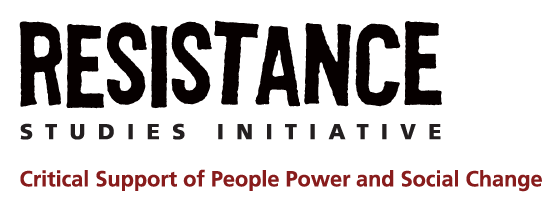
Resistance Studies Initiative Fall Speaker Series:
Distinguished researchers and activists share critical reflections on resistance issues.
Mandy Carter is a Resistance Studies Fellow at the Resistance Studies Initiative at UMass Amherst, and a southern black lesbian activist with a 52-year movement history of social, racial, and LGBTQ+ justice organizing since 1967. Raised in two orphanages and a foster home as a ward of state of New York, Ms. Carter attributes the influences of the Quaker based American Friends Service Committee, the former Institute for the Study of Nonviolence, and the pacifist-based War Resisters League for her sustained intentional multi-racial and multi-issues organizing.
Ms. Carter, 70, serves on the National Council of Elders who are 20th century organizers committed to the theory and practice of nonviolence that includes veterans of a wide range of 20th century civil rights, justice, environmental, LGBTQ, and peace movements. We are united to engage with organizers of the 21st century. In 2005, she was nominated and included in the 1000 Women for the Nobel Peace Prize 2005.The 1000 women from 150 countries were guided in their work by nonviolence, integrity, and selflessness.
Abstract: This talk by Resistance Studies Fellow Ms. Mandy Carter initiates a new project of the Resistance Studies Initiative on Intersectional Resistance Alliances during this fall. In the talk Carter, who leads the project, will share about why she believe it is both timely and critical that we can and should create with/between different identity groups models of intentional intersectional alliances among and across resistance movements.
The talk will take the starting point from her own experience in the LGBTQ+ movement and communities of color. Being a black lesbian social justice activist, which includes participation in/with the predominantly white LGBTQ+ movement, she will illustrate as to why we are at a crossroads. Thus, the question/challenge is: Are we about justice, or are we about just us? With the help of examples, it is shown that even in the midst of victories, rifts and tensions are occurring within our communities. However, these examples serve as an illustration to a wider problem.
Today all people of color and identity groups in the US are threatened by the current regime, still we seem to have severe problems collaborating and building effective alliances across groups of working class, Black, Hispanic, Muslim, Indigenous, women, LGBTQ+, as well as other repressed identity groups. Why is that the case? One key challenge is to figure out the role of and what it means to be an authentic “ally”. Another is to figure out how we form effective, just and equal alliances, and how we make broad and united demands that do not silence any dominated group and concerns. In order to explore these challenges, as well as possible models for building alliances, the Resistance Studies Initiative at UMass Amherst is conducting a project on Intersectional Resistance Alliances.
Refreshments will be served
Open to all
